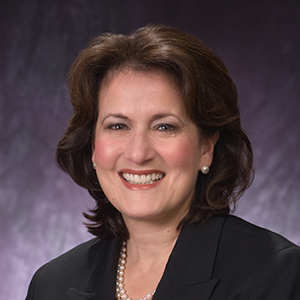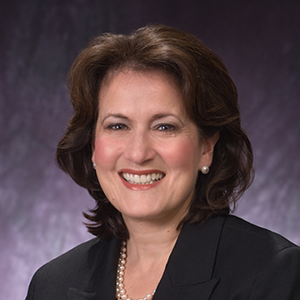
Former Chief of Staff for the First Lady Anita McBride video conferenced with us today, and, boy, has she worked in the White House for quite a while.
McBride said that she never looked back after campaigning in 1980. Between 1987 and 1992, she was the Director of White House Personnel under both President Ronald Reagan and President George H. W. Bush. More recently, though, she was the Chief of Staff for First Lady Laura Bush from 2005 to 2009. Check here for more background information.
Above all, McBride, who is now a professor at American University, discussed in the conference the responsibilities and the life of a First Lady.
She says that being the First Lady of the United States can be “very painful,” but can also, at the same time, “help to humanize” the president. She cites President Lyndon B. Johnson and his wife Lady Bird Johnson as a great example of this.
After all, First Ladies, throughout history, never “run shadow governments” behind their husbands. They’re there to help and support them.
On the First Lady she worked with most, McBride said that Laura Bush was “typecast” as a house wife right off the bat. Instead, as most First Ladies should, McBride said that Bush put herself out there to do all the interviews and show genuine interest in the country’s issues and interests.
First Lady Michelle Obama demonstrated this recently with her coverage of bullying in schools across the country.
If the First Lady does that and makes the attempts, McBride calls them a “champion.”
But what happens when a First Lady tries to cover too many issues at once?
“It’s certainly a risk,” McBride said.
She believes that one can “absolutely” lead a normal life as a president, and that knowing our presidents and their wives give us comfort. We can relate to them… or as least think we can.
What surprised me most was when McBride told the class that the First Lady is an unpaid job, but that her staff (which is technically not even her staff but her husband’s) is. What a job to have to not even get paid for!
“I don’t miss getting up at 5 AM,” said McBride, commenting on her job. However, she said that she does miss the camaraderie and the ability “to get terrific things done” each day.
If she was given the choice to work with any First Lady in history, McBride answered either Dolley Madison or Abigail Adams. Both were fantastic hostesses and patriots.
Overall, a very interesting interview and probably one of my favorite parts of COMM 361 thus far!
For more, check this video:
Click here to view the embedded video.





